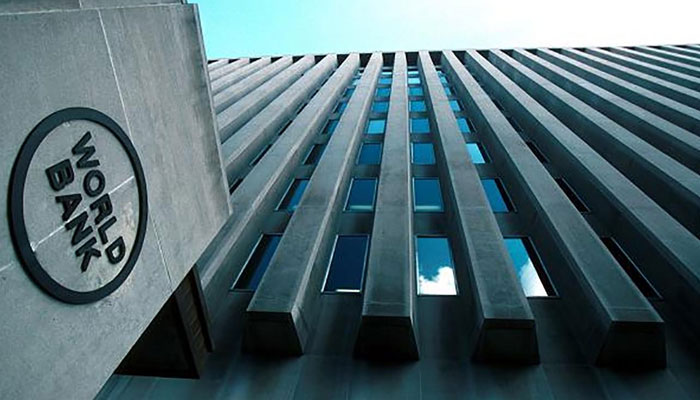More trouble for Pakistan as WB links $450m loan with IMF review
Pakistan is eyeing to secure $700 million in programme loans during the ongoing fiscal year 2022-23
May 09, 2023

- Pakistan is eyeing to secure $700m in programme loans during FY23.
- Approval of RISE-II is linked with macroeconomic stability.
- Even after 3 months, agreement is yet to be reached with IMF.
ISLAMABAD: The World Bank has linked approval of seocnd RISE-II (Resilient Institution for Sustainable Economy) loan with the completetion of the stalled International Monetary Fund (IMF) programme, denting Pakistan's efforts for securing loans from multilateral creditors, The News reported Tuesday.
The World Bank's RISE-II programme envisages loans worth $450 million.
The Asian Infrastructure Investment Bank (AIIB) would also provide co-financing of $250 million, so in totality, Pakistan is eyeing to secure $700 million in programme loans during the ongoing fiscal year 2022-23.
However, the approval of the second RISE programme has been linked with macroeconomic stability and the completion of the pending IMF review.
The revival of the IMF programme has so far proved a hard nut to crack, as both sides are engaged in talks since February but the staff-level agreement could not be realised.
Almost three months have passed but the staff-level agreement is yet to be reached mainly because the gross external financing gap could not be fulfilled up to the satisfaction of the Fund.
When Pakistan and the IMF concluded in-person talks on February 9, the IMF estimated that Pakistan required gross external financing of $7 billion for the ongoing financial year.
Keeping in view the improvement in the current account deficit which ultimately turned into a surplus of $654 million for the last month, the IMF slashed the requirement of external financing needs to $6 billion and finally to the level of $5 billion.
Out of $5 billion in external financing needs, Pakistan secured confirmation on the financing of $2 billion from Saudi Arabia and $1 billion from the United Arab Emirates. However, formal agreements have not been done so far.
The Pakistani authorities, however, claimed that a formal agreement with Saudi Arabia has been exchanged and it would be done.
Now the remaining $2 billion in external financing remain unfulfilled. The Pakistani authorities argued that the World Bank and AIIB were expected to disburse $700 million in programme loans within the period of the ongoing financial year.
Out of the remaining $1.3 billion, Pakistan expects $300 million in project financing from the international donors for flood-affected areas till end June 2023.
Now the remaining $1 billion in financing is required from the international commercial banks. It is not yet known how this $1 billion financing from the commercial banks would be secured as the banks were asking for signing an agreement with the IMF but the Fund has been asking for confirmations.
The Pakistani side did not rule out the possibility of involvement of a “political angle” behind these dillydallying tactics on the part of the IMF. Pakistan has been sandwiched between the US and China and the authorities do not have a crystal clear clue about how to proceed further to steer the country out of the severe crisis.
In response to a question sent to the World Bank's spokesperson, the officials said: “The World Bank continues to work with the Government of Pakistan on the preparation of the RISE-II Development Policy Operation, including discussions around supported policy actions on which there has been considerable progress recently; the adequacy of the macroeconomic framework; the financing amount; and the timeline for approval, in particular, as it relates to the completion of the ongoing IMF review”.
Meanwhile, former economic adviser, Dr Khaqan Najeeb explained that the ninth review based on September 22 data with the IMF was largely stuck on the issue of the financing gap. Both sides have moved closer as the KSA, UAE, and multilateral financing gets confirmed.
As far as commercial financing was concerned with a very low country credit rating, it’s a tough call but restoration of the programme with the IMF can help in this regard, he added.
He stressed Pakistan’s access to multilateral project aid and programme financing like Rise II and associated co-financing was largely dependent on the IMF programme revival.
With $3.7 billion in repayments till June 30, it is imperative that Pakistan secures all the dollar financing including the IMF, friendly countries, bilateral, multilateral, and some commercial loans, he concluded.











